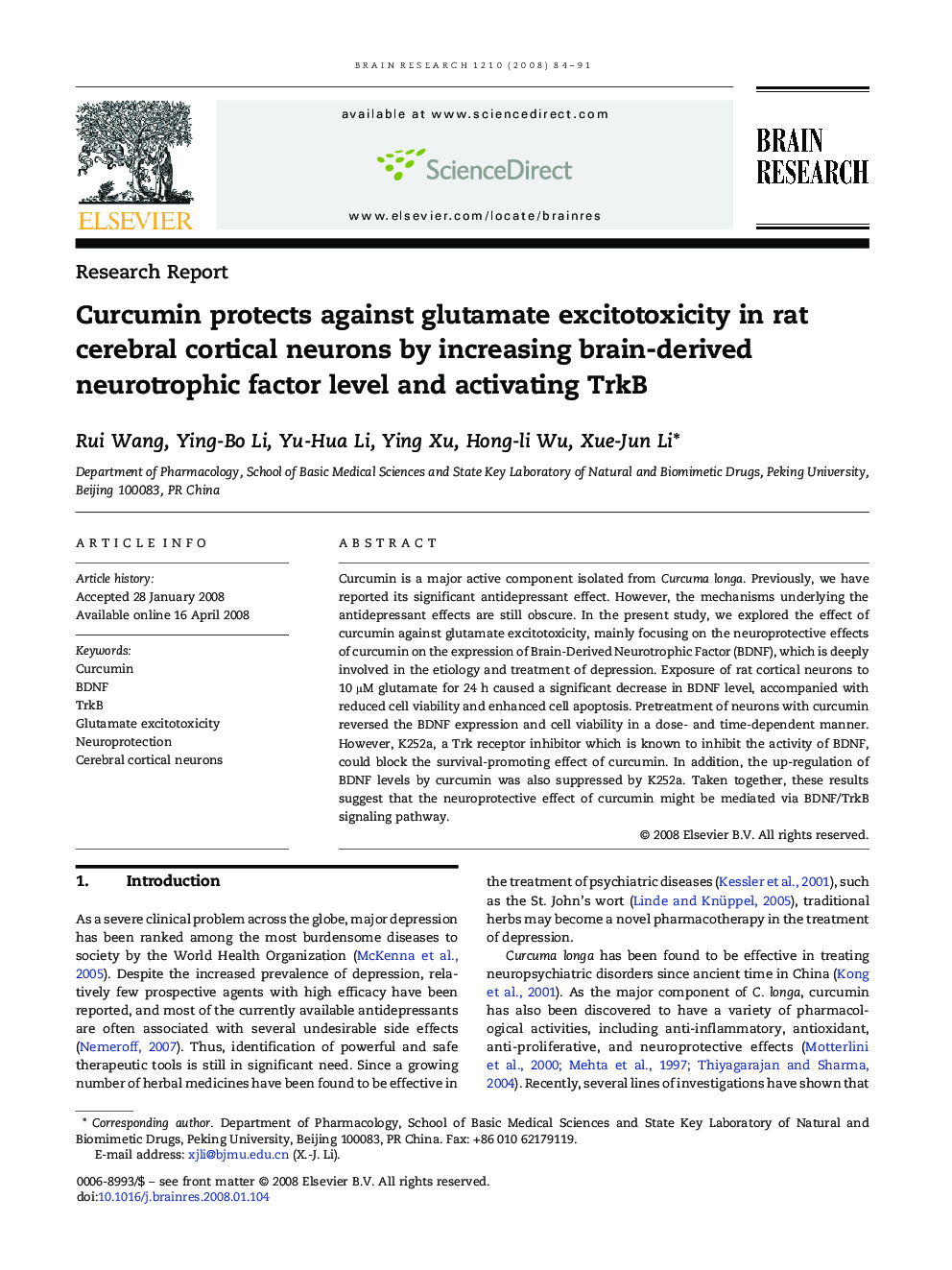| Article ID | Journal | Published Year | Pages | File Type |
|---|---|---|---|---|
| 4329657 | Brain Research | 2008 | 8 Pages |
Curcumin is a major active component isolated from Curcuma longa. Previously, we have reported its significant antidepressant effect. However, the mechanisms underlying the antidepressant effects are still obscure. In the present study, we explored the effect of curcumin against glutamate excitotoxicity, mainly focusing on the neuroprotective effects of curcumin on the expression of Brain-Derived Neurotrophic Factor (BDNF), which is deeply involved in the etiology and treatment of depression. Exposure of rat cortical neurons to 10 μM glutamate for 24 h caused a significant decrease in BDNF level, accompanied with reduced cell viability and enhanced cell apoptosis. Pretreatment of neurons with curcumin reversed the BDNF expression and cell viability in a dose- and time-dependent manner. However, K252a, a Trk receptor inhibitor which is known to inhibit the activity of BDNF, could block the survival-promoting effect of curcumin. In addition, the up-regulation of BDNF levels by curcumin was also suppressed by K252a. Taken together, these results suggest that the neuroprotective effect of curcumin might be mediated via BDNF/TrkB signaling pathway.
